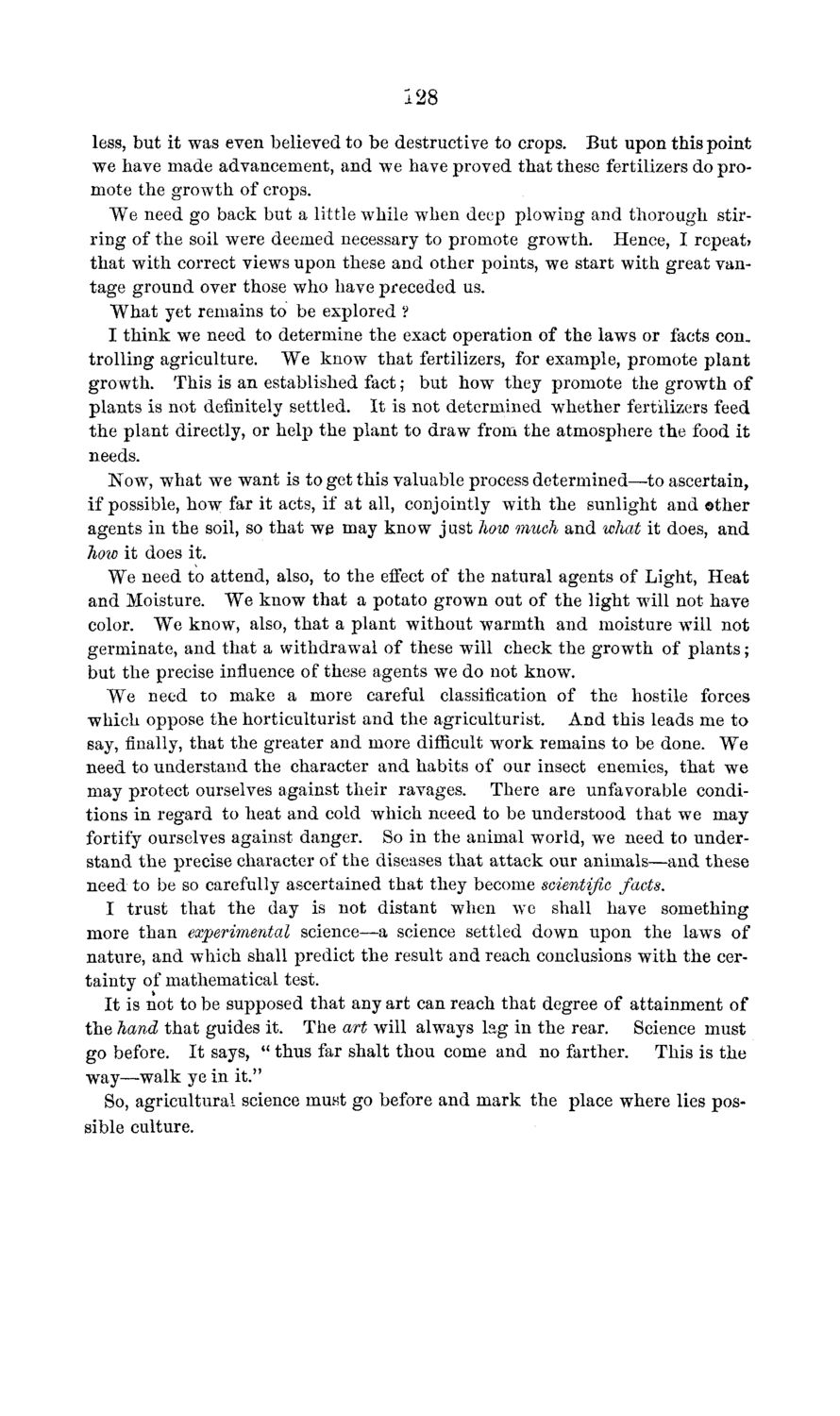| |
| |
Caption: Board of Trustees Minutes - 1869
This is a reduced-resolution page image for fast online browsing.

EXTRACTED TEXT FROM PAGE:
128 less, but it was even believed to be destructive to crops. But upon this point we have made advancement, and we have proved that these fertilizers do promote the growth of crops. We need go back but a little while when deep plowing and thorough stirring of the soil were deemed necessary to promote growth. Hence, I repeat* that with correct views upon these and other points, we start with great vantage ground over those who have preceded us. "What yet remains to be explored ? I t h i n k we need to determine the exact operation of the laws or facts con_ trolling agriculture. We know that fertilizers, for example, promote plant growth. This is an established fact; but how they promote the growth of plants is not definitely settled. It is not determined whether fertilizers feed t h e plant directly, or help the plant to draw from the atmosphere the food it needs. Now, what we want is to get this valuable process determined—to ascertain, if possible, how far it acts, if a t all, conjointly with the sunlight and ©ther agents in the soil, so that we may know just how much and what it does, and how it does it. We need to attend, also, to the effect of the natural agents of Light, Heat and Moisture. We know that a potato grown out of the light will not have color. We know, also, that a plant without warmth and moisture will not germinate, and that a withdrawal of these will check the growth of p l a n t s ; but the precise influence of these agents we do not know. We need to make a more careful classification of the hostile forces which oppose the horticulturist and the agriculturist. A n d this leads me to say, finally, that the greater and more difficult work remains to be done. We need to understand the character and habits of our insect enemies, t h a t we may protect ourselves against their ravages. There are unfavorable conditions in regard to heat and cold which neeed to be understood t h a t we may fortify ourselves against danger. So in the animal world, we need to understand t h e precise character of the diseases that attack our animals—and these need to be so carefully ascertained that they become scientific facts. I trust that the day is not distant when we shall have something more than experimental science—a science settled down upon the laws of nature, and which shall predict the result and reach conclusions with t h e certainty of mathematical test. It is not to be supposed that any art can reach that degree of attainment of the hand that guides it. The art will always lag in the rear. Science must go before. I t says, " thus far shalt thou come and no farther. This is the way—walk ye in it." So, agricultural science must go before and mark the place where lies possible culture.
| |